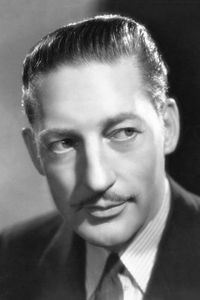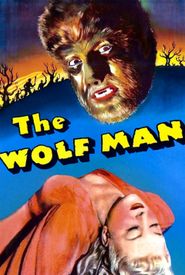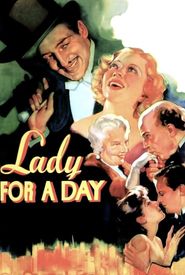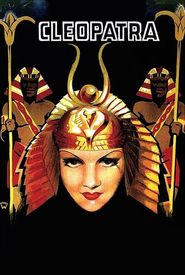Warren William, the stalwart leading man of pre-Production Code Hollywood, was born Warren William Krech on December 2, 1894, in Aitkin, Minnesota, to a newspaper publisher. Originally planning to become a journalist, he changed his mind and attended the American Academy of Dramatic Arts to become an actor.
He served in the military in France during World War I and remained in the country after the Armistice to tour with a theatrical company. William made his Broadway debut in 1924 and went on to appear in 17 more plays on Broadway from 1924 to 1930.
He also appeared in three silent films under his own name, Warren Krech, and played a credited bit part in the serial photoplay "Plunder" (1923). Possessed of a first-rate speaking voice, rich, deep, and mellifluous, he was a natural for the talkies.
William initially thrived in the all-talking pictures, appearing in a lead role in his first talkie, "Honor of the Family" (1931),an adaptation of Honoré de Balzac's novel "Cousin Pons." He went on to appear as second leads and leads in support of the likes of Dolores Costello, H.B. Warner, Walter Huston, and Marian Marsh.
He then moved on to leading roles in A-list pictures, including "The Mouthpiece" (1932),"The Dark Horse" (1932),"Three on a Match" (1932),"Gold Diggers of 1933" (1933),"Lady for a Day" (1933),and "Imitation of Life" (1934).
William's outstanding performances in these roles include "Skyscraper Souls" (1932),"The Match King" (1932),and "Employees' Entrance" (1933). He also broadened his range to play the fraudulent clairvoyant in "The Mind Reader" (1933).
The early 1930s were the apogee of William's career, during which he appeared opposite strong female stars, including Barbara Stanwyck, Claudette Colbert, Bette Davis, Ann Dvorak, and Loretta Young.
With his patrician looks and bearing, William was loaned out to Cecil B. DeMille to play the patrician Julius Caesar in "Cleopatra" (1934),opposite Claudette Colbert. He went on to play the second Sam Spade (renamed Ted Shayne) in the "Maltese Falcon" remake "Satan Met a Lady" (1936) with Bette Davis.
He eventually found himself in B-films, making his inaugural and terminal appearance as William Powell's premier replacement in the role of Philo Vance in "The Dragon Murder Case" (1934). After making his first appearance as the cinema sleuth Vance, William returned to his roots as a court-room advocate, cast as the first Perry Mason in "The Case of the Howling Dog" (1934).
After four films, he was replaced as Erle Stanley Gardner's A-#1 attorney in 1936 by former silent screen heart-throb Ricardo Cortez, the man who had first played Sam Spade in the original "The Maltese Falcon" (1931). Before leaving the studio, William appeared in one more picture under contract at Warners Bros., the A-list "Stage Struck" (1936).
Another movie series beckoned, and William appeared as Michael Lanyard's "The Lone Wolf" in nine movies made by Columbia from 1939 to 1943, beginning with "The Lone Wolf Spy Hunt" (1939). Of the ten actors who appeared as "The Lone Wolf" in the 30 years the series ran, off and on, from 1919 until 1949, he made twice as many films as his nearest competitor.
William continued to act in character parts calling for a patrician presence until his premature death in 1948. Personally, Warren William was a shy and retiring type. Speaking of him, five-time Warners co-star Joan Blondell said that William "was an old man even when he was a young man."
According to San Francisco critic Mick LaSalle's 2002 book "Dangerous Men: Pre-Code Hollywood and the Birth of the Modern Man," William, who quite unlike his early Warner Bros.' stereotype as a heartless "love 'em and leave 'em"-style seducer, remained married to one woman throughout his adult life.
He was an active inventor with multiple patents, designing one of the first recreational vehicles, reportedly so he could continue to sleep while being driven to the studio in the morning. Warren William died in Hollywood on September 24, 1948, of multiple myeloma.






































































